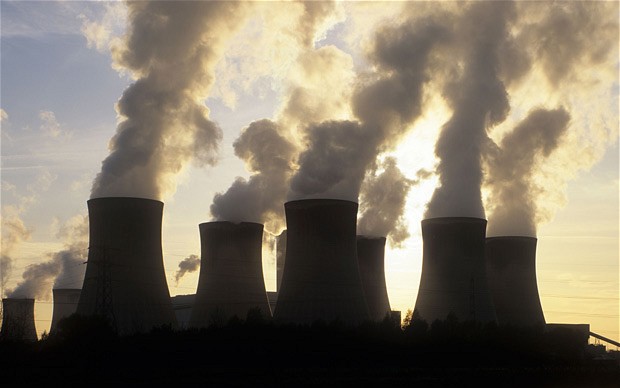A global coalition of civil society organisations from social movements, environmental and development NGOs, trade unions and faith groups on Wednesday, November 3, 2021 released a new report titled: “Fair Shares Phase Out: A Civil Society Equity Review of an Equitable Global Phase Out of Fossil Fuels”.

The report applies a long-standing “equity analysis” to countries’ climate pledges (Nationally Determined Contributions or NDCs) to assess how each country is delivering on the Paris Agreement’s goal of pursuing best efforts to limit warming to 1.5°C.
“Questions of climate action are not only scientific; they are also moral questions. Since Paris in 2015, Civil Society Reviews have provided a broadly agreed ethical basis for assessing countries’ pledges against their fair shares of the necessary global effort. The results show that the actions proposed by countries, at home and abroad, especially from wealthy countries like the UK and the US, are far from what’s required,” said Lidy Nacpil, Coordinator of the Asian Peoples Movement on Debt and Development.
“A key gap in international climate action is identified by the report as well, an elephant in the room: international goals do not currently address the production of fossil fuels,” explained Sara Shaw of Friends of the Earth-International.
Building on previous CSO Equity Reviews, the 2021 report includes:
- an updated equity assessment of NDCs revealing how current pledges for climate action remain deeply inadequate and unjust. While the wealthiest countries (US, UK, EU, Japan) remain far-below contributing their fair shares of the global effort, some less-wealthy countries (China, India, South Africa, Kenya) have mitigation pledges reaching about — or above — their full fair shares;
- thirteen country profiles to demonstrate the diversity of challenges and opportunities in addressing fossil fuel production at the national as well as international level, and highlights real-world problems playing out in key countries;
- An introductory framework for addressing “supply-side equity” issues relating to the phaseout of fossil fuel extraction, as well as a number of possible solutions including both national and international interventions.
“Fossil fuels are the biggest driver of global heating. The lack of coordinated international action, based on principles of equity and justice, is a huge barrier to addressing the climate crisis. This report outlines how governments, if they listen to their people, could begin this historic and necessary shift,” commented Harjeet Singh, of Climate Action Network International and the Fossil Fuels Non-Proliferation Treaty Initiative.
The report makes five recommendations to equitably align fossil fuel production with 1.5°C:
- Deliver on long overdue commitments from the Paris Agreement (and previously), particularly the wealthiest polluters must contribute their fair share to solving the crisis by cutting emissions deeper and faster while cooperating with less wealthy nations by providing climate finance for technology, adaptation, as well as loss and damage.
- Recognise fossil fuels as the key contributor to the climate crisis and creating new pathways and international platforms to urgently end expansion, phase down production, and fast-track just transitions for all countries and communities;
- Prioritise international cooperation with fossil fuel dependent countries that are least able to adjust by providing resources for renewable energy systems, workers’ and communities’ just transitions, as well as broader economic diversification and transformation;
- Strengthen the building blocks of a fair shares phase out, which could include a First Movers Club of countries committed to ending the financing and extraction of fossil fuels, a Registry of global fossil fuels reserves to increase transparency and accountability, a Commission dedicated to carrying forward diplomatic discussions towards a phase out, and enhanced international legal instruments such as a fossil fuel non-proliferation treaty to equitably align production within 1.5°C;
- Change the rules of global trade, investment, finance and technology to increase “policy space” for governments expediting emergency policies and exploring new programs to encourage commerce that respects the rights of people and the planet over profit.
Bert de Wel, Climate Policy Officer, International Trade Union Confederation (ITUC): “A fossil fuel phaseout must provide a just transition. A just transition sees workers and their unions, together with other stakeholders, as key actors. A substantive transition must take social dialogue and inclusive decision making seriously.”
Mohamed Adow, Founder and Director of Power Shift Africa: “We have spent too long talking about emissions reductions without highlighting clear steps to end fossil fuel supply. Fossil fuel phase out and energy transition are clear necessities to avoid the worst of climate change, especially for African countries who bear the least responsibility and worst effects. This report lays out clear imperatives to ensure that phase out and energy transition can happen in a just and equitable manner.”
Tom Athanasiou, Executive Director, EcoEquity: “It’s one thing to talk in vague and airy terms about a fair global climate transition. It’s another to talk about specific nations and their challenges, relative to the very rapid fossil phaseout we now need. This report, which gets down to key country cases, is a step forward for the global climate justice movement – and a sign of its ongoing maturation. There’s much more to say, of course, but this is a terrific piece of work.”
Victor Menotti, Oakland Institute: “Amid a global climate summit when top consuming-countries are pressuring top producing-countries to increase fossil fuels output, A Fair Shares Phase Out shows the cooperative international actions governments can take to ensure stability and to equitably align global production with 1.5°C.”
Asad Rehman, War on Want: “Pulling back from the edge of climate catastrophe requires us to both break the link with our addiction to burning more fossil fuels and the race to drill for more oil and gas. Staying within the 1.5°C temperature level and doing so equitably whilst meeting the huge crisis of energy poverty needs a fair share approach to energy.”
